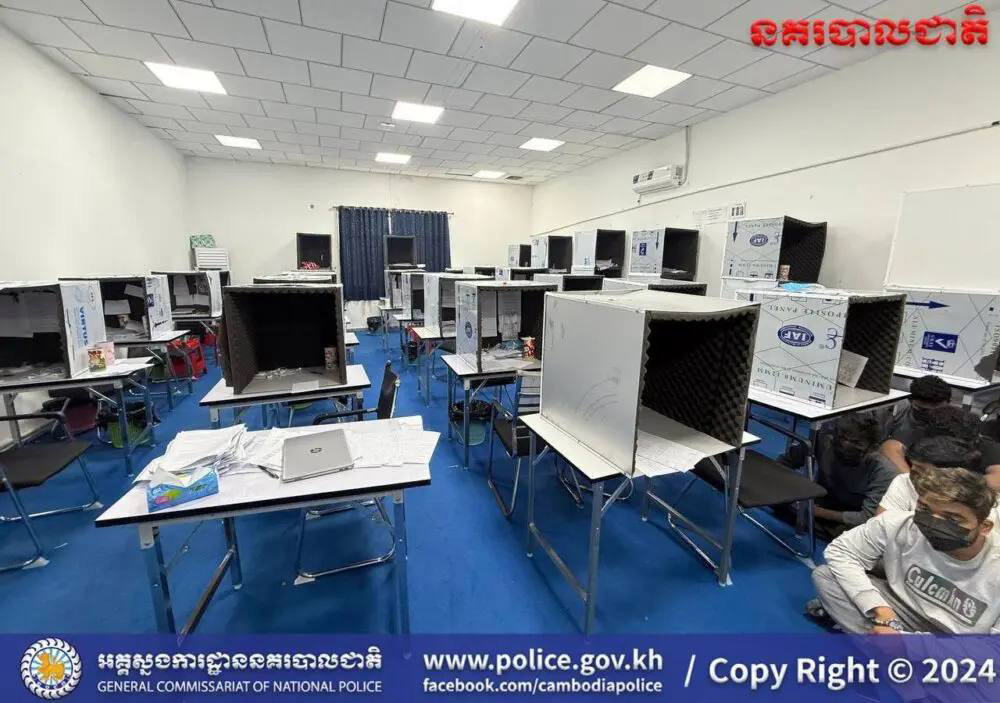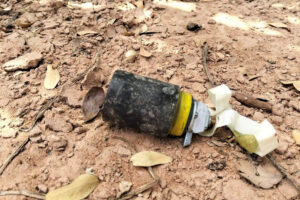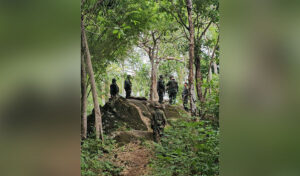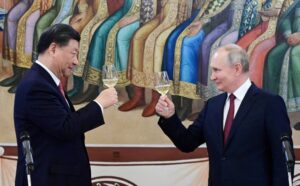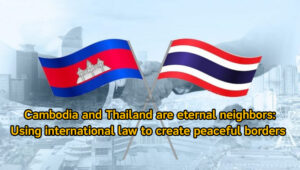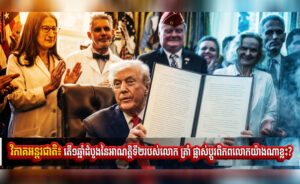OP-ED: Cybercrime is a Modern Issue: We Cannot Sit Around Blaming Each Other, But Must Settle It Together
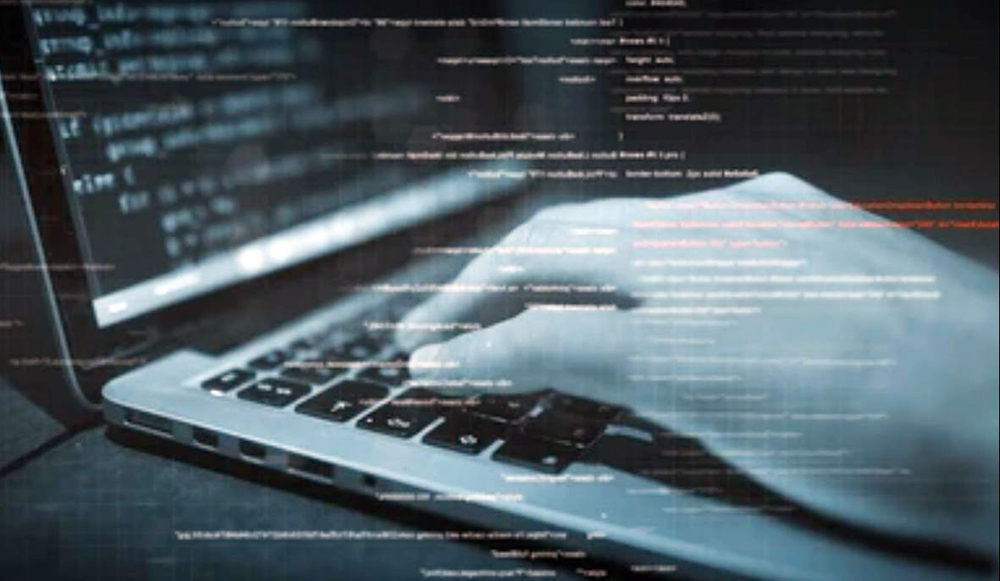 OP-ED: Cybercrime is a Modern Issue: We Cannot Sit Around Blaming Each Other, But Must Settle It Together
OP-ED: Cybercrime is a Modern Issue: We Cannot Sit Around Blaming Each Other, But Must Settle It Together
AKP | Phnom Penh, June 26, 2025 –Cybercrime, online crime, phone or online fraud is the fastest growing criminal activity in the modern era. Although it may be known by many names in different nations, it is a crisis which confronts us all. Now more than ever, it is crucial that we confront this scourge together and fight as a united coalition, rather than attempting to apportion blame.
This type of crime is a product of modern civilisation, in the era of artificial intelligence (AI) and digital technology transformation. It occurs and spreads around the world. It is a crime without borders, as criminal groups can operate anywhere there is an internet connection. Even Thailand itself has been widely reported to be involved in this problem. It is known as a safe haven in the region, with an overflowing internet system, which facilitates criminal networks and human trafficking gangs as they carry out illegal activities in Thailand and neighbouring countries, including Cambodia.
At this time, we cannot sit around and blame each other, as the Thai authorities have been doing. They have tried to paint Cambodia as a nation of crime to cover up their own leadership weaknesses, lack of law enforcement and internal political turmoil, while also seeking to divert the attention of the international community from the unilateral border closures.
In this regard, Prime Minister Paetongtarn Shinawatra – who even admitted that she almost fell victim to a scam that used AI to impersonate a foreign leader in the past – has shown a lack of responsibility and ethics in her leadership.
She has shamelessly avoided the problems that the Thai military itself created – such as causing the death of a Cambodian service member, the unilateral border closures, and many other issues that the Thai side has caused around the border with Cambodia – and instead linked this issue to the issue of cybercrime in Cambodia. Thailand itself has been reported in the international media as being involved in this fraud, as well as various human trafficking operations.
The tension at the border – which stemmed from the weakness of the leadership structure of the neighbouring Kingdom and led to the Thai government abandoning its legal rights in accordance to the constitution, enabling the military at the local level to make decisions on border tensions – has made the risk of armed conflict on Mom Bei even higher. Threats include not just military action, but economic and diplomatic pressure, but the Thai authorities do not care and fabricate cybercrimes to cover it up.
Not only that, the Thai government and authorities have stood by and allowed Thai media and several social media content creators in their country to create and spread fake news and report information that distorts the truth about the situation and the events that have occurred since May 28. They have taken no measures to ensure the implementation of a code of ethics for journalists or for using social media.
In this sense, Thailand, which was once recognised as a country that respects the press, has now become a country that lacks ethics. Its media outlets publish unprofessional news, report news related to the Cambodia-Thai border issue according to their own imagination, using personal emotions, abandoning professional journalism rules, and discrediting domestic and international opinion.
Turning to the urgent need to combat cybercrime, all stakeholders, including the UN have recognised the complexity of this problem, which is a global transnational crime, requiring cooperation and a joint global response. This type of modern crime is widely acknowledged as being much harder to prevent than traditional crimes.
These crimes are committed in a complex technological ecosystem. When combined with the digital revolution and the dawn of the AI era, they are spreading and occur almost everywhere, including in Thailand.
This requires cooperation and interconnection through all mechanisms, from the local level, the national level within a country, to the regional level across borders.
Cambodia is a victim of these transnational crimes, but it is not a centre of fraud, as recently alleged. Cambodia is active in combating transnational crime, having taken appropriate measures to prevent and suppress all illegal acts that have occurred on Cambodian territory since the pre-Covid-19 period, and will continue to do so. The Royal Government of Cambodia has never been indifferent to fraud, or other illegal acts.
In fact, Cambodia cancelled all online gambling licenses in 2019. Since then, it has arrested and detained many foreign criminals, some of whom have been sent back to China. Despite this, the Kingdom has been criticised for these actions, on the grounds of human rights issues. The Royal Government is determined to prevent and combat all these crimes even more vigorously, under the slogan: “Together, we will clean the garbage from our homes!”
Thailand only just began to crack down on these crimes after Chinese actor Wang Xing was kidnaped from Suvarnabhumi Airport in early January, leading to a sharp drop in Chinese tourist arrivals to Thailand. Following the incident, Thai authorities have been quick to accuse others, including Cambodia. The UN recently issued a letter to the Thai government, asking for clarification about its efforts to combat the cross-border human trafficking and online crime operations that flourish in some parts of the country.
Cybercrime, phone or online fraud is a form of modern crime that requires systematic cooperation to combat it. No country has been able to successfully eradicate 100 percent of traditional crimes, so how can any one nation be expected to tackle sophisticated modern crimes alone.
To combat these crimes requires systematic, comprehensive, honest and transparent cooperation, not attempts to link it to other problems and blame others. Such actions are not ethical, nor are they examples of a respectful leadership. All nations should unite to fighting these crimes, through increased cooperation and mutual respect, not propagating conflict or offering baseless criticism.
